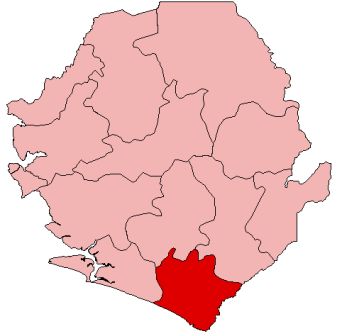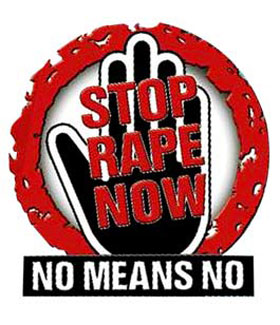OGI Meets Bonthe District
In an interactive session conducted by the Open Government Initiative, the people of Bonthe District were over the weekend enlightened on the operations of the Justice Sector and its related functions including the police, prisons, social welfare, the Human Rights Commission and the Anti Corruption Commission.
At a jam packed Court Barry at Mattru Jong, Justice Abu Fofanah explained that the Judiciary, the third organ of the Government charged with the responsibility of interpreting the law decide disputes between individuals and punish law breakers.
He gave a breakdown of the court systems which he told his audience, includes the local courts, the Magistrate Courts, the High Court, the Appeal Court and the Supreme Court.
The learned Justice also explicitly dilated on their roles and adequately distinguished the cases dealt with by the various courts pointing out the volume of tasks levied on the judiciary.
Citing the local courts in the country, he said eighty percent of the population is concerned with customary laws, and went on further to disclose that plans are underway for the establishment of a judicial institution to improve the capacity of all court personnel for the effective and efficient dispensation of Justice.
He also informed the people that government with the assistance of its donor partners has embarked on the construction of courts in various parts of the country to ensure that the people of this country have access to justice at their doorsteps in order to avoid court delays.
Justice Fofanah further said that the Law Reform Commission is relentlessly working in updating what he referred to as out dated laws, punishment and fines that he said, are not commensurate with modern standards. He also revealed that the Law Reform Commission is mandated to propose laws while advising government on the amendment of legislations.
In mentioning the various constraints faced by the judiciary, Justice Fofanah made mention of lack of trained personnel in the staffing structure and inadequate logistics which he said is hampering the efficiency of the judiciary.
Assistant Inspector General of Police Southern Region Mr. David Sesay in his contribution said that since the revoking of the MAC-P protocol, the crime rate in the South has reduced drastically and that the entire Province is relatively calm.
AIG Sesay however reported of political threats in the up coming chieftaincy elections which he asserted confidently that the police are ready to put under control. The Police boss appealed for the support of the people so that they would be well policed. He also lamented over the numerous constraints faced by the police. This he said includes lack of personnel to police the region and insufficient vehicles to effectively patrol the inland and river line in the Bonthe District.
Director of Social Welfare, Mr. Mohamed Conteh said his ministry caters for the welfare of the down trodden. He said that the ministry creates a conducive environment for the protection of women and children, and said they have made strides in promoting laws against all forms of discrimination and violence against woman and support for the convention on the Right of the Child.
A representative of the Anti-Corruption Commission, Sariffou Hartleston emphasized the commission’s role in not only minimizing corruption but completely eliminating it. Mr. Harleston said the government has empowered the ACC so much so that it has become very effective in the fight against corruption, and appealed to the people to join hands in the fight against corruption.
Underscoring the role of the Human Rights Commission, the Southern Human Rights Coordinator Cyphas Williams gave a background of the Commission since its establishment. He reiterated that the Commission protects and promotes the Human Rights of all Sierra Leoneans and promotes peace and development in the country. Mr. Williams said the Commission receives and investigates complaints from the general public on all Human Rights violations.
The Resident Judge in the Southern Region Naomi Tunis distinguished between criminal and civil law. Judge Tunis expressed disappointment that people especially children are very much aware of their rights rather than their responsibilities. She urged children to have respect for authorities and encouraged parents in the proper up bringing and education of especially the girl child noting that proper nurturing of children will reduce the crime rate in the country.
During the question and answer session, the people of Bonthe District were delighted to learn that bail is free, and that police should not demand money for the withdrawer of cases from police stations. They also learnt that nobody is above the law, and that the state counsels are there to represent the under privileged.
On the issue of traditional authorities, he said that subjects have the right to sue their chiefs for offences meted against their personality and that suspects and accused persons have the right to give their own side of the story.
They however expressed concern over the alarming increase in the back log of cases due to the absence of a resident magistrate in the district. The high fines levied by local authorities and the lack of salaries for local authorities were also mentioned as an area of concern for the community. Questions also boarded around the increase of bribe among the police, and the question of who investigates. Â
Stay with Sierra Express Media, for your trusted place in news!
© 2009, https:. All rights reserved.






